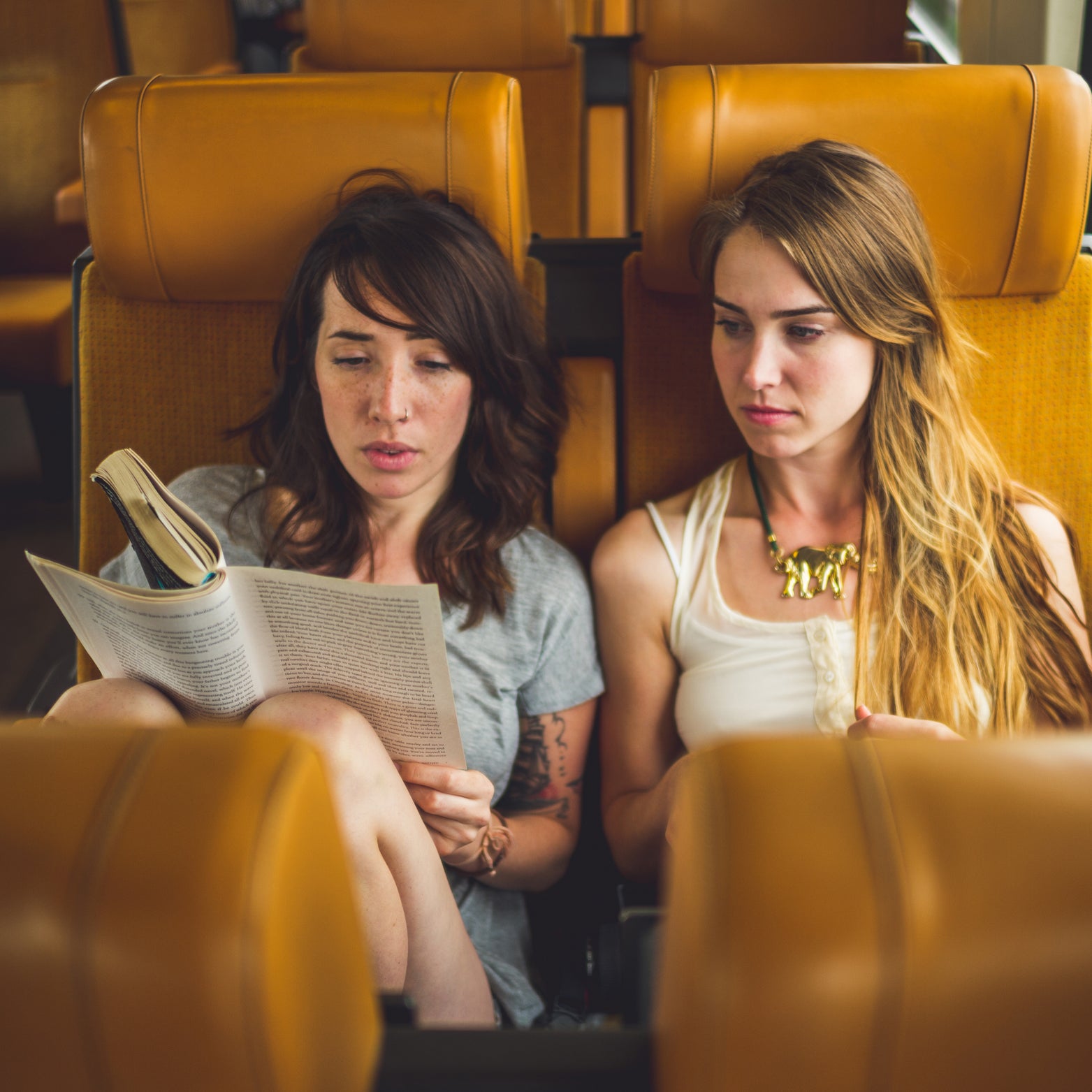One of the great benefits of extended travel is the time it affords for reading. People talk about beach reads, but for me it’s bus reads, bench reads, train reads, “Sorry sir your room will be ready in two hours” reads. Robert Louis Stevenson wrote that “The great affair is to move.” I would add, “…and stop for a good read now and then.”
The road was made for the word.
On a long trip, it is the little private pleasures that sustain you and what is more private than an enjoyable book?
For many, travel has always been a bookworm’s hobby. Certainly it stands for me. And I do mean books: you will find no tablet in my backpack. Fellow travelers often gawk at this: how do I cope? The extra weight of books, to say nothing of the nuisance of finding them—madness!
With tablets, you customize your reading repertoire without bounds. Everything is available. Just type it in. But therein lies the problem. When the selection process falls to you, you often forfeit the best selector of all: chance.��
Keeping to physical books has transformed my literary life. On the road I usually have two or three books on me. When I finish one I exchange it or sell it to a second hand shop. It becomes one of the routines of travel. Every once in a while you wash your clothes, get a haircut; every once in awhile you find a new book.��
And because I am severely limited in my selection, I have been forced to choose works which I would never have plucked from the Kindle universe simply because I had not known they existed. What a joy! In Mandalay I discovered . In Malé, . In Siem Reap, . In Florence, . In Xiamen, . In Monterey, . In Kanchanaburi, . The list goes on. It literally requires a search—sifting through piles, blowing off dust. And with each one, like a favorite song first heard, I can vividly recall its provenance. , from which that Stevenson quote is pulled, was gifted to me by a British quaker and vintage . Memory always favors the printed word. And travel is nothing but a desire for discoveries.��
Such finds often serve as a kind of a tonic to road weariness. Travel is often painted as a merry-go-round but much of it, particularly the solo long-term variety, is accompanied by bouts of fatigue and self-doubt: Is this really what I should be doing with my time, wandering alone? A good book found in a strange town is one answer which tends to reassure; I may have loathed Mandalay but at least it gave me . On a long trip, the little private pleasures sustain you. And what is more private than an enjoyable book?
Another benefit of the physical world: in the same revealing way that a person’s bookshelf speaks volumes, you learn about a place when you see what is shelved in its bookstores. In Myanmar, for example, it does not take a detective to notice the wide availability of George Orwell volumes. You will not find a bookstore or seller—for the majority of books are peddled on the street, yellowed, warped and covered with plastic tarps during sudden rains—that does not possess the dystopian author. You might assume the reason to be that he based his first novel, , on his stint living there as a colonial police officer. That is one component but there is another, more revealing one.��
Memory always favors the printed word. And travel is nothing but a desire for discoveries.
Orwell, the Burmese will tell you, was able to illustrate Myanmar’s authoritarian nightmare with uncanny and lasting precision. What is 1984 and to a Burmese if not reflections in print of Ne Win, the socialist strongman who held the country in an Orwellian vice for 26 years? Until recently, these works were banned, punishable and distributed only in clandestine ways.��That is what a street-side bookseller in Hsipaw who goes by Mr. Books told me: pointing at copies of the late contrarian he said, “Before, if police see us selling these books, we get seven years in jail.” Today you see Orwell nearly as much as you do framed portraits of human rights champion and . Both cluttered the modest shop of Mr. Books, a greying democracy activist. So whereas tablet travelers, satisfied with their amorphous marketplace, might stroll by a bookstore without so much as a glance inside, I am joyfully ensconced there, looking, listening, learning.��
Never once have I regretted lugging around books. What I have regretted carrying are things with screens: my laptop, my smartphone. They are professional necessities—always, I pay my way with freelance reporting. But not only are such items liabilities–they break, get stolen, require outlets—they are teleporters, taking you away from where you are, into the unplace of the Internet. At its best, travel is like meditation; grounding, existential, telling you where you are. The Internet and the devices which take you there are antithetical to that.��
Books, like music, are transportive but in a different way: they take you inside yourself. And, most importantly, they do not allow you to reach out or for anyone else to butt in (“Hey 🙂 where are you??”). They are, like travel, inherently inner experiences. No charging required.��


